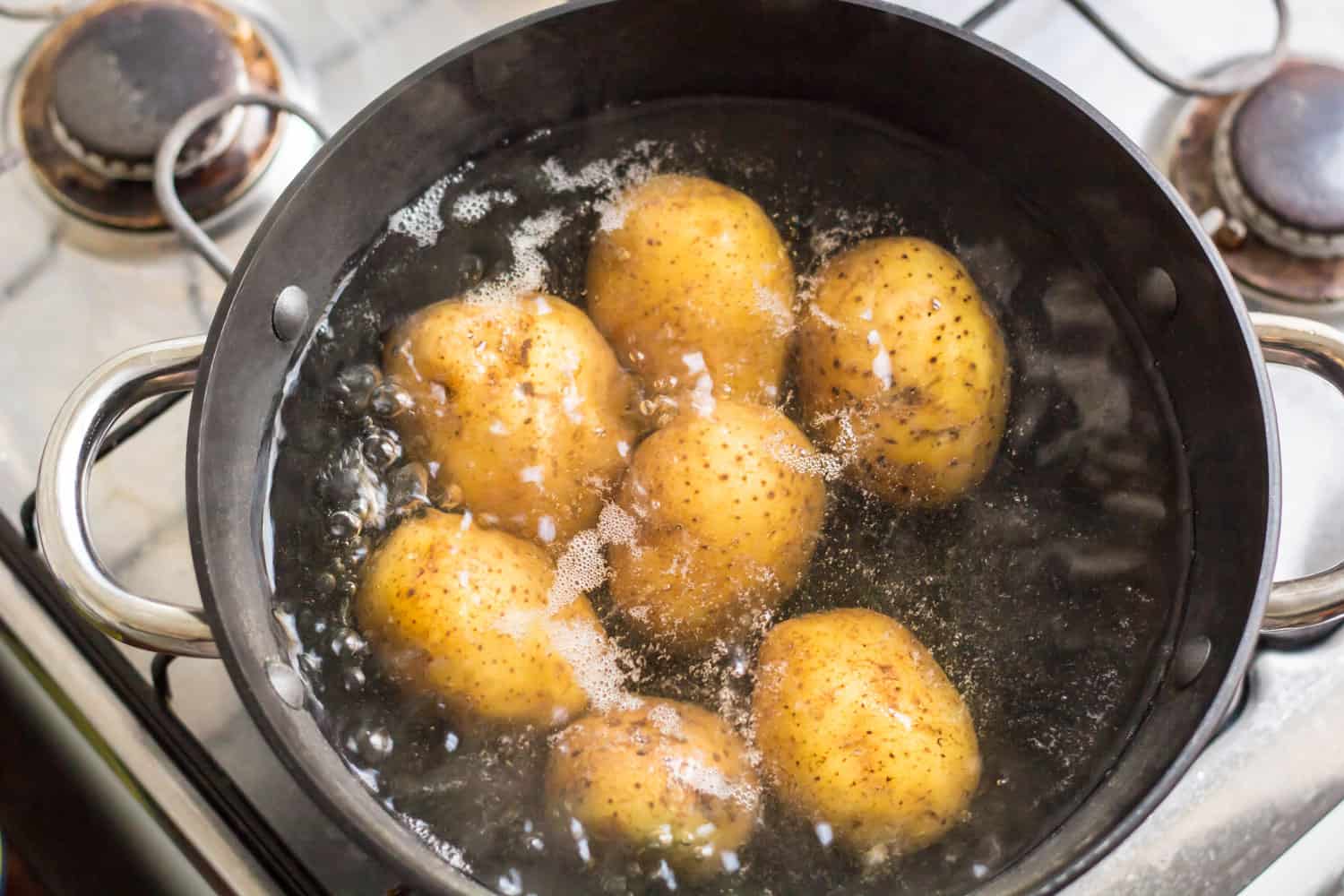Stuck with too many spuds? Made too much mash? Good news – like other leftovers, you can safely store cooked potatoes in the freezer, stashing them away for a future dinner. It’s far better for your wallet (and the planet) than throwing leftovers away, and you’ll save time in future by not having to prep spuds from scratch. Here’s our step-by-step guide to how to freeze potatoes.
Before you begin, there are a few things you need to know about freezing potatoes. Its cheap, its convenient, and tasty, too. Freezing cooked potatoes has no negative impact on the taste or texture of your cooking, and in some cases, will add to the delicious crispiness that makes potatoes so irresistible.
Just one golden rule to remember: you don’t usually need to defrost your frozen potatoes before you cook them up again, so in most of the methods and recipes below, they’re ready to use straight from frozen. All you’ll need to get started is some space in your freezer, resealable bags and a little patience.
First things first: potatoes should never be frozen raw. They contain a lot of water, which when thawed will give the potato a mushy or grainy texture. Not ideal for making hash browns for weekend brunch!
In this article, we’ll show you how to freeze potatoes when they’re cooked in various ways, including mashed, roasted, baked and boiled. We’ll also explain how you can cook with your frozen spuds, and provide some weeknight meal inspiration with our best potato recipes.
Can You Freeze Potatoes? Yes! You absolutely can freeze potatoes, and you should if you have an excess of spuds. But there’s one important thing to remember: You should really only freeze cooked or partially cooked potatoes, as raw potatoes contain a lot of water.

How to freeze mashed potatoes
Step 1: Make the mash If you haven’t already got a dish of mash ready to go, make your mashed potato as you like it. If you’re feeling in a root veg mood, whip it up with celeriac or squash.
Step 2: Cool it down Once your mash is cooked, it needs to cool down. Put your mash in a deep bowl, then place the bowl into a dish filled with ice-cold water and let the temperature drop to at least room temperature.
Step 3: Freeze away Divide your mash into handy one-person portions so you’ll have the exact amount you need. Put each portion in a resealable, airtight bag, then push out any excess air and freeze each portion as flat as possible (so it doesn’t take up too much space in your freezer). When you want to eat it, simply put in a pan with a little extra butter or cream, stir, and heat through.
How to freeze roast potatoes (or homemade chips)
Step 1: Peel, size and shape Peel the potatoes (or don’t, depending on your taste), then chop into your desired size and shape.
Step 2: BlanchIf you’re making roasties, drop into boiling water for 5 mins. Chips are smaller, so only need about 2 mins. Once time is up, plunge the potatoes into iced water, then pat dry.
Step 3: Fry upHeat some oil or solid fat in a frying pan, then briefly toss your shaped potato in the sizzling fat to coat and add flavour. If you’d prefer, drizzle your potatoes with oil, then bake in the oven for a few minutes.
Step 4: FreezeCover then flash-freeze your roasties or chips on a baking tray, flat and not touching, for 6 hrs. When frozen solid they’re ready to be tipped into a freezer bag and kept until you need them.
Pro tip: Freezing improves the texture of roasties and chips, making for a softer, fluffier centre and an extra-crispy coating. But this comes with a crucial caveat: never defrost frozen roasties or chips before cooking, as this will make them mushy. Simply drizzle with oil, season, and roast for as long as your recipe requires.
How to freeze potatoes the right way – Blanche it and freeze it
FAQ
Can you freeze potatoes after boiling?
Why do cooked potatoes not freeze well?
How do you reheat frozen boiled potatoes?
Do you have to blanch potatoes before freezing?
Can you freeze boiled potatoes?
Place in a pot of salted water and bring to a boil. When the potatoes are just barely fork tender, drain and let cool to room temperature. Place the boiled potatoes in freezer bags or containers removing as much air as possible, label and pop in the freezer. I try to think about how I will use the potatoes once they are thawed.
Is it beneficial to soak potatoes in cold water?
Yes. Soaking potatoes in cold water before frying can have some benefits, such as: Remove the starch from the surface of the potatoes, so that they do not stick and become soft during frying; Hydrate the potatoes, improving moisture retention and leaving them soft inside and crispy outside; Prevent potatoes from browning, as cold water prevents surface oxidation.
How long do boiled potatoes last in the freezer?
The boiled potatoes will last up to 12 months in the freezer. To thaw the potatoes, simply remove from the freezer and place in the refrigerator overnight. Voila! Can you freeze boiled potatoes?
Do parboiled potatoes freeze well?
Parboiled potatoes freeze really well, but if you overcook them, they are likely to become soggy or soft. It’s also important to remember not to cook them for too long during the reheating process, as you will ruin their texture.
